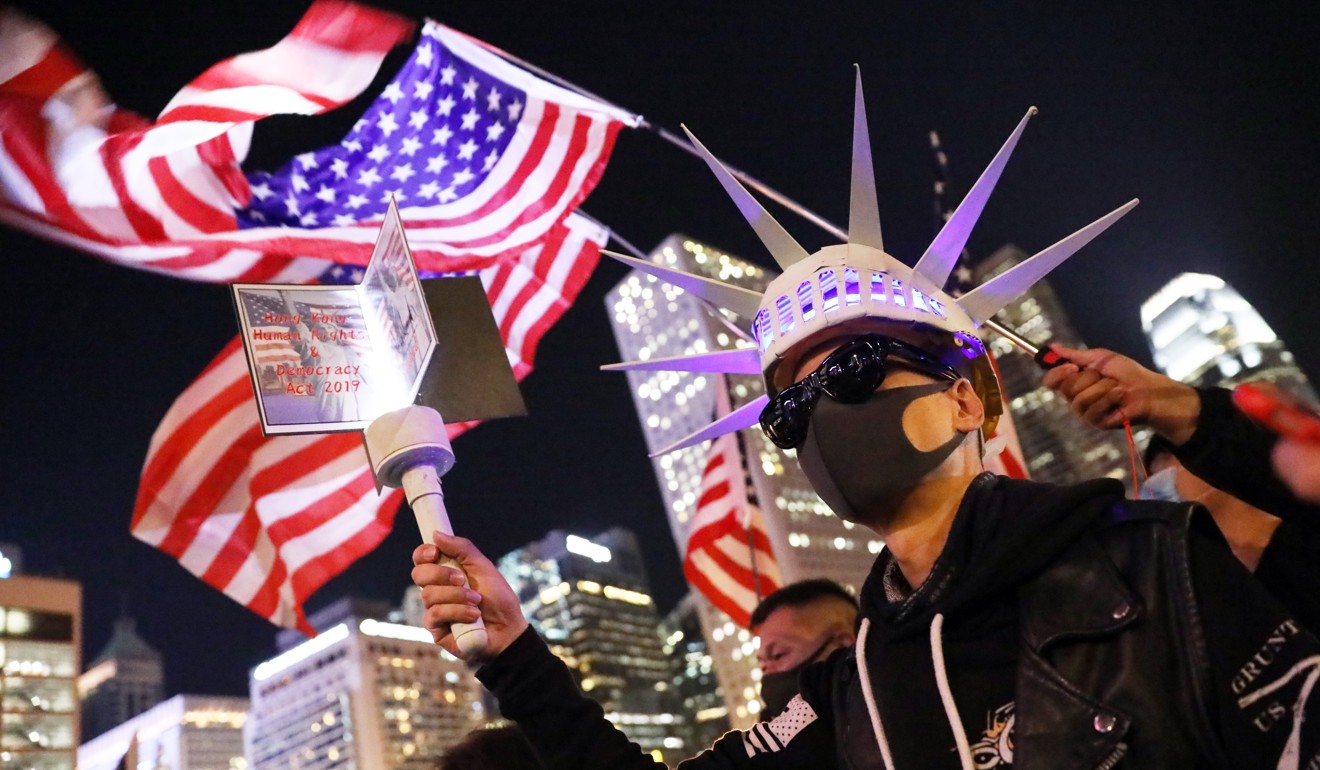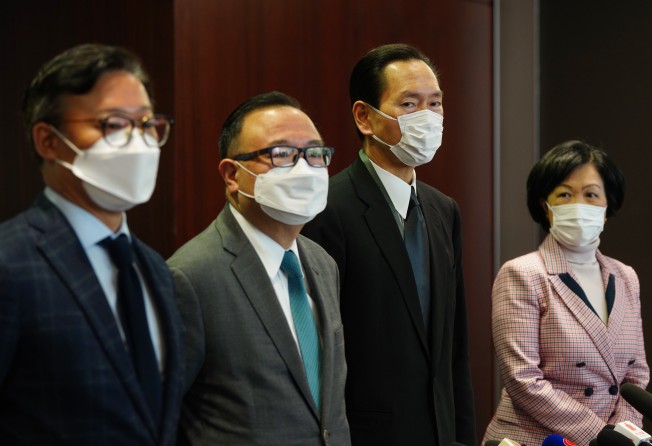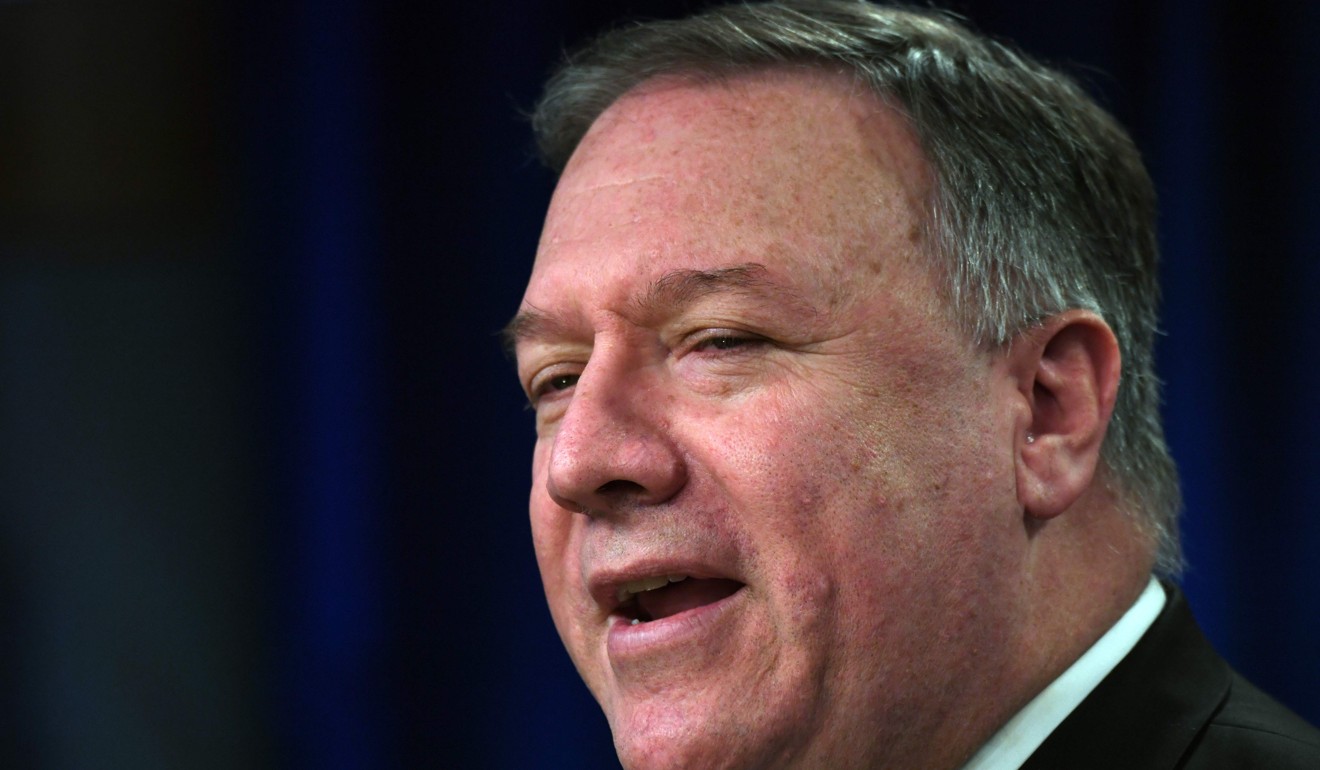
United States unlikely to impose sanctions on Hong Kong, cabinet advisers say after visit
- Team of key politicians doubt penalties coming in report to Congress later this month
- Opinion comes after rare meeting with American officials in California centred around US law aimed at protecting rights in the city

The United States is unlikely to impose sanctions on Hong Kong under a bill the Trump administration signed into law last year covering human rights in the Asian financial hub, a group of advisers to the city’s leader said after meeting American officials.
The visit by the seven-member delegation, which included opposition figures, was the first since US President Donald Trump signed into law the Hong Kong Human Rights and Democracy Act amid violent anti-government protests that erupted last summer.
Regina Ip Lau Suk-yee, chairwoman of the pro-establishment New People’s Party, said US penalties on the city would be detrimental to Washington’s objectives.
“They understand that if sanctions are imposed against officials, US interests will eventually be affected if there are countermeasures against them,” she said, calling on Washington to respect Beijing’s authority over Hong Kong.

That 1992 act allowed for the city to be treated differently from mainland China in terms of trade, diplomacy and politics following the 1997 handover.
But last year, amid the escalating violence, widespread expressions of anger against Beijing and calls for American intervention in the city’s affairs, both the US House of Representatives and the Senate unanimously passed the rights bill, which Trump signed into law in November. It paves the way for Washington to take diplomatic action and economic sanctions against the city’s government, and requires the US government to regularly assess Hong Kong’s autonomy to preserve its special trading status under the 1992 law.
Executive Council convenor Bernard Chan said he told the Americans that passing the rights act at such a time was “inappropriate and unhelpful”.
Chan said he told the officials: “Even though you may claim all you do is with good intentions, the unintended consequences are to further divide the people in Hong Kong.”
American officials attending the talks included the State Department’s Jonathan Fritz, who is deputy assistant secretary of state for East Asian and Pacific affairs.
The opposition lawmakers joining the pro-establishment figures were Jeremy Tam Man-ho, Kenneth Leung and Charles Mok.
A prominent figure of the anti-government movement, Joshua Wong Chi-fung, said he was not optimistic the US would announce sanctions in the upcoming report, but said the document would “definitely criticise” the erosion of Hong Kong’s autonomy.
“The US government may pay far more attention on handling the [coronavirus] pandemic,” Wong said, adding the upcoming American presidential election and the downturn in the global economy could see the city’s affairs take a back seat in Washington.
Wong said the fact cabinet members had gone to the US demonstrated the Hong Kong government was worried that powers under the bill will be invoked.

The US should also launch formal investigations to “identify and consider sanctioning” Hong Kong officials responsible for alleged police brutality during the anti-government protests, the letter says.
Meanwhile, the Committee on Canada-China Relations in the Canadian House of Commons passed a motion to "express its grave concern" over the arrest in Hong Kong of Jimmy Lai Chee-ying, a media tycoon known for strongly criticising Beijing, and other pro-democracy politicians last month.
In a statement issued on Tuesday, a spokesman for Beijing’s foreign ministry’s office in the city expressed strong opposition to the motion, saying the parliamentarians are “openly condoning the criminal suspects, impeding Hong Kong courts' judicial proceedings, and grossly interfering with Hong Kong’s judicial independence”.